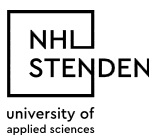Bachelor of International Business (NHL Stenden University of Applied Sciences)
Leeuwarden, Emmen, Netherlands
Reviewed by NQA
- Valid from
- 01-07-2023
- Valid until
- 09-08-2026
Contact information
- Institution
- NHL Stenden University of Applied Sciences
- Website
- https://www.nhlstenden.com/en
- Country
- Netherlands
Assessment report
NQA - Assessment Report - BA- International BusinessExecutive Summary
In March 2022 the bachelor study programme International Business (IB) of NHL Stenden University of Applied Sciences was visited by an NQA audit panel. This visit was carried out to reassess standard 3 of the Assessment Framework for the Higher Education Accreditation System of the Netherlands of the Accreditation Organisation of the Netherlands and Flanders (NVAO) 2018. The reassessment took place, since the previous audit panel assessed this standard as ‘partially meets the standard’ in 2020. This study programme is a full-time programme, taught in English and offered in the cities of Leeuwarden and Emmen.
The previous audit panel laid down the following requirements for the study programme to meet the generic quality on standard 3:
- “Sufficient adequate and executed actions that safeguard and improve the final assessments of the IBMS and IBL study programmes;
- Sufficient adequate and executed actions that safeguard and improve the assessment of the IB programme, explicitly including knowledge test and sufficient concrete plans to safeguard the final assessment of the IB study programme.”
The present panel is of the opinion that the IB study programme of NHL Stenden Hogeschool now meets the generic quality on standard 3. Since 2020, the study programme has evidently made considerable progress with respect to student assessment. To achieve this, the study programme has taken tremendous steps, based on a detailed Recovery Plan. All stakeholders and relevant bodies, such as the Examination Committee and Test Committee, have been actively involved in this process. This has led to a large number of changes, not only in student assessment, but also in the study programme as a whole. The requirements laid down by the panel in 2020 have been met. Sufficient actions have been taken to safeguard and improve the final assessments of IBMS and IBL (first requirement). There is an adequate quality management system in place, with properly working evaluation cycles and active involvement of examiners, students, the Programme Committee, Examination Committee, Test Committee and Graduation Committee. Examiners work with the test cycle. The recovery trajectory has also been supported by extensive professionalisation with respect to student assessment. Calibration of assessments is frequent and has become common practice among examiners. The assessment forms of the graduation products have become better structured and more insightful. However, as to filling in these forms, there is room for further improvement, also adding more detailed feedback.
To safeguard and improve the assessment of the IB programme (second requirement), the study programme has taken similar actions as mentioned above. Specific actions haven executed to improve the knowledge tests, such hiring more experienced experts for various knowledge areas and improving the didactics in the knowledge modules.
The study programme has developed a new graduation project for IB, which was implemented in February 2022. This development was also carried out in close cooperation with relevant bodies and stakeholders. The panel is positive about the set-up of the new IB graduation project. It is an applied research project for an IB-organisation, in which students analyse a complex business problem in an international business setting for which they have to propose a solution in the form of an advice or design. The new graduation project is accompanied by adequate supervision and assessment, the latter based on the four-eyes-principle.
In conclusion, the panel is positive about what has been achieved by the study programme in a relatively short period of time. This positive judgement also holds for the step taken by the management of the study programme to take the Recovery Plan in a broader perspective to make changes in the study programme as a whole, with more structure, formalisation and alignment as major goals.